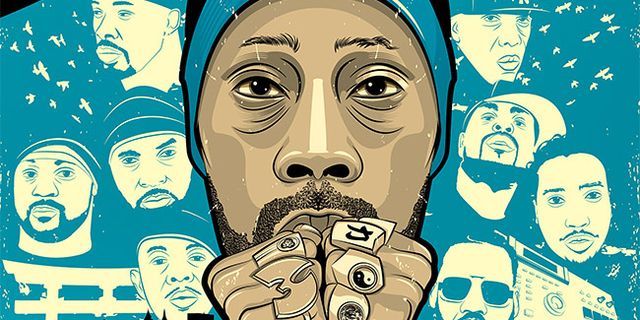

(As in 2003, we allowed votes for compilations and greatest-hits albums, mainly because a well-made compilation can be just as coherent and significant as an LP, because compilations helped shaped music history, and because many hugely important artists recorded their best work before the album had arrived as a prominent format.) When we first did the RS 500 in 2003, people were talking about the “death of the album.” The album -and especially the album release - is more relevant than ever. The electorate includes Beyoncé, Taylor Swift, and Billie Eilish rising artists like H.E.R., Tierra Whack, and Lindsey Jordan of Snail Mail as well as veteran musicians, such as Adam Clayton and the Edge of U2, Raekwon of the Wu-Tang Clan, Gene Simmons, and Stevie Nicks. To do so, we received and tabulated Top 50 Albums lists from more than 300 artists, producers, critics, and music-industry figures (from radio programmers to label heads, like Atlantic Records CEO Craig Kallman). So we decided to remake our greatest albums list from scratch. But no list is definitive - tastes change, new genres emerge, the history of music keeps being rewritten. Over the years, it’s been the most widely read - and argued over - feature in the history of the magazine (last year, the RS 500 got over 63 million views on the site).
#Wu tang clan forever rza stop biting our shit update
Some hailed Wu-Tang Forever as the best double-disc hip-hop album yet released, but others regarded it as a disappointment despite its many high points, it's the first time the Wu didn't quite fulfill their ambitions.Rolling Stone’s list of the 500 Greatest Albums of All Time was originally published in 2003, with a slight update in 2012. Wu-Tang Forever easily would have made a brilliant single CD RZA's production is more polished than the debut, thanks to a bigger budget and better equipment, and leans heavily on soundtrack-style strings to underscore the album's cinematic scope. The second disc is far too long, diluting the impact of its better songs (the terrific single "Triumph") with an excess of lackluster material. Once you get past the rambling Five Percenter introduction, the first disc is pretty tight, partly because it was kept short to leave room for enhanced CD content. In other words, the group is starting to go off in more individual directions here, making it harder to maintain an overall focus. On the other hand, you also get some of the group's most explicit sex raps yet ("Maria," "The Projects," the utterly bizarre ODB solo track "Dog Shit"). On the one hand, there's more social consciousness on Wu-Tang Forever, taking hard looks at ghetto life while finding pathos and offering encouragement and uplift ("A Better Tomorrow," "Impossible"). While the result, Wu-Tang Forever, is frequently brilliant, it's also sprawling and unfocused, losing its handle on the carefully controlled chaos of Enter the Wu-Tang.


So why not give it a shot? With a main crew of nine MCs (plus new protégé Cappadonna), the Wu wouldn't have to depend heavily on guest appearances to flesh out two whole discs of material, as Biggie and 2Pac had. By the time the Wu-Tang Clan finished their first round of solo projects and reconvened for their second album as a group, the double-disc album had become the hip-hop fad of the moment.


 0 kommentar(er)
0 kommentar(er)
